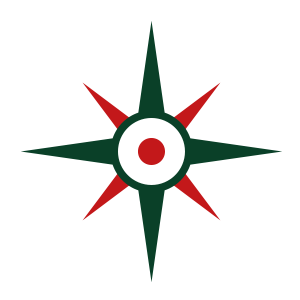ISM News
Update nr. 109
In this ISM News Update:
- COVID-19 Guidance for shipowners and captains
- Polar Code for SPS non-SOLAS-ships (vessels<300 GT)
- Withdrawal of Inmarsat Fleet 77 Services
- Reminder refresher training
- Training Designated Security Duties (DSD) online
- Change in text EU2009/45 Directive
Stay tuned, sign up for our ISM News Update.
COVID-19 Guidelines for shipowners and captains
Sailing under the ISM Code, ship operators should assess all identified risks to their ships and personnel and take appropriate safety measures. As a result, plans and procedures should also be developed to minimize the risks from the COVID-19 pandemic to the health of seafarers and the safety of their ship operations.
It is crucial to identify the risks and to establish good protocols.
Based on the COVID-19 guidance of the ICS, Rood Boven Groen has written its own manual / summary. This RBG Guidance can be found on our website.
Polar Code for non-SOLAS-ships
The Polar Code is a binding international framework to protect the polar regions against maritime risks and includes regulations on the design, construction, equipment, training, search and rescue and environmental protection relevant to ships sailing in the polar regions. This code is mandatory for ships sailing under SOLAS in polar waters. The Polar Code is not much about sailing in ice, but more about the response of the equipment and equipment to low temperatures (think of pipes that freeze, batteries that discharge, the viscosity of oil, etc.).
The IMO adopted a resolution for non-SOLAS ships operating in Polar waters at the end of 2019. It urges Member States to voluntarily implement safety measures from the Polar Code for ships not covered by SOLAS (ie SPS ships, ships <500 GT, fishing vessels and non-trading pleasure yachts).
There are Member States that have seen this urgency before and have already progressed voluntarily to implement these measures. The Norwegian government (NMA), among others, has decided that in (now only about) 3 years a number of requirements from the Polar Code will become mandatory for the sailing charter ships that sail around Spitsbergen.
Withdrawal of Inmarsat Fleet 77 Services
The GMDSS-approved satellite communications service Inmarsat Fleet 77 will be closed on December 1, 2020.
The Inmarsat Fleet 77 Ship Earth Stations still in use on ships must be replaced by December 1, 2020 to meet legal compliance with GMDSS requirements.
Reminder refresher training
On the 3rd of May 2014, the new maritime crew regulations came into force. One of the changes was the five-year repeat obligation for safety training Basic Safety, Advanced Fire Fighting, Proficiency in survival craft and rescue boats (other than fast rescue boats) and Proficiency in fast rescue boats. The obligation to demonstrate that training skills have been demonstrated no more than five years ago has commenced on 1 January 2017. This means that by that date the refresher training should have been followed by people who did their initial training before January 1, 2012.
It has turned out that some people were not informed about (parts of) this change in the law and are now unable to participate in refresher training when renewing their certificate of competency, but must follow initial training. Unfortunately, this requirement cannot be circumvented, see also the information bulletin that ILT has recently published: https://www.ilent.nl/onderwerpen/bemanning-zeevaart/instructie-toegang-stcw-herhalingstrainingen
Training Designated Security Duties (DSD) online
We live in a modern age with many possibilities. Where you used to have to write letters or find any necessary information in libraries, you can now easily send an email and consult the internet around the clock. This is also the case with learning.
We are proud to add the Designated Security Duties for Seafarers to our list of online training courses.
Since 2018, Rood Boven Groen has, in association with the Dutch Ministry of Infrastructure and Transport, developed a complete new concept of learning and STCW training. Using the IMO’s Modell Courses as a reference, online courses have been established. The comprehensive content of these digital STCW trainings can rely on years of approved classical teaching experience combined with the latest insight in online training possibilities and up to date daily seagoing experience. Some of our online training comes with a combinated taskbook to be used onboard, which will enhance and deepen the theoretical knowledge in a practical and live environment. Not one classical lesson can reach this level of personal interaction in real time onboard.
Not having any idea of today’s virus crisis when inventing the online STCW trainings three years ago, it seems now to turn out very helpful for seafarers and Shipping companies to fulfill their training needs online. The Rood Boven Groen online STCW trainings are affordable, approved and filled with relevant information. Trainings made by seafarers to serve seafarers.
Change of text EU2009/45 Directive
The scope of the European Directive 2009/45 / EC was changed at the end of 2019. This explicitly excludes seagoing sailing passenger ships from the scope of this Directive. For this reason, ILT can no longer issue certificates based on this guideline without a legal basis.
It is still unclear what the government’s position on this is. It has been promised that hard work will be done on this certification issue.
A direct consequence, however, is that seagoing sailing ships may not take more than 36 passengers on day trips.
Rood Boven Groen and the BBZ are increasing the pressure on the ministry to find a solution urgently.



